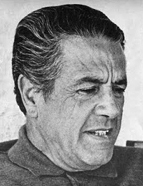

Having passed away in 1973, a considerable part of his intellectual legacy was well received by the generations that followed, despite his official role in the Estado Novo. The themes of the essays on the "national character" and even on expansion continued to find acceptance, with emphasis placed on the encounter between peoples and cultures represented by the latter, while downplaying its significance as an enterprise of imperial power and exploitation. The richness of the works on traditional rural life, particularly on material culture, was recognised. The studies on Vilarinho da Furna and Rio de Onor, the first and for a long time the only monographs on Portuguese rural society held great appeal for anthropologists and sociologists of the peasantry after 1974, when the social sciences were able to develop in Portugal—although the image they conveyed of communalism was subject to criticism for not sufficiently accounting for the existing inequality. The very establishment of democracy in 1974, with its revaluation of the "people", also contributed to this. But this appeal went beyond conventional academic circles to become the subject of films— Vilarinho da Furna in 1971 and Falamos de Rio de Onor, both by António Campos which premiered in 1974—in which their traditional way of life is portrayed in a highly favourable light. Communalism appealed to the critics of a modern, increasingly urban society, especially those who emerged from the anti-capitalist and anti-consumerist backlash, as well as the nostalgia for community life that intensified from the late 1960s onwards (Sobral, O Outro aqui tão Próximo..., pp. 512-517). They too were young rebels with many positions akin to those that had once led the anthropologist to the rural world.
